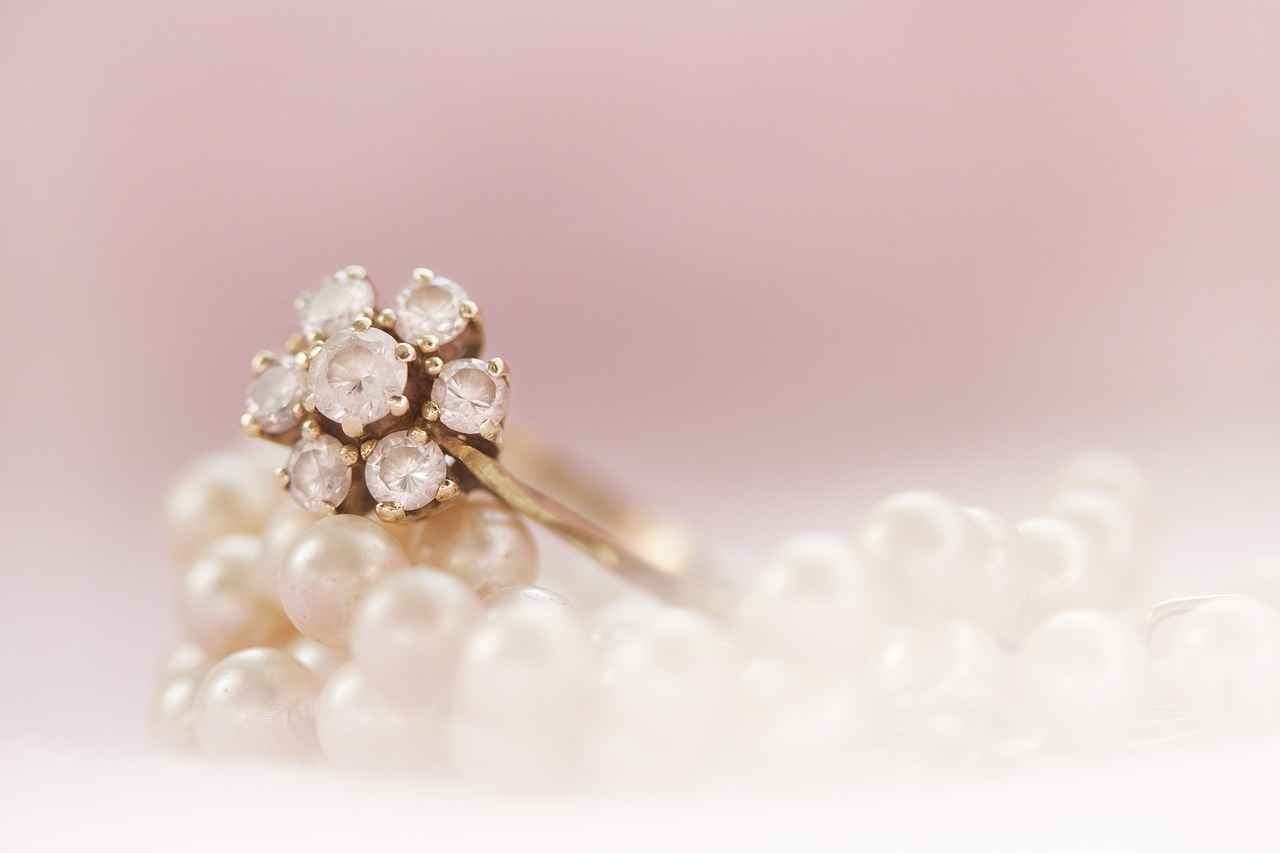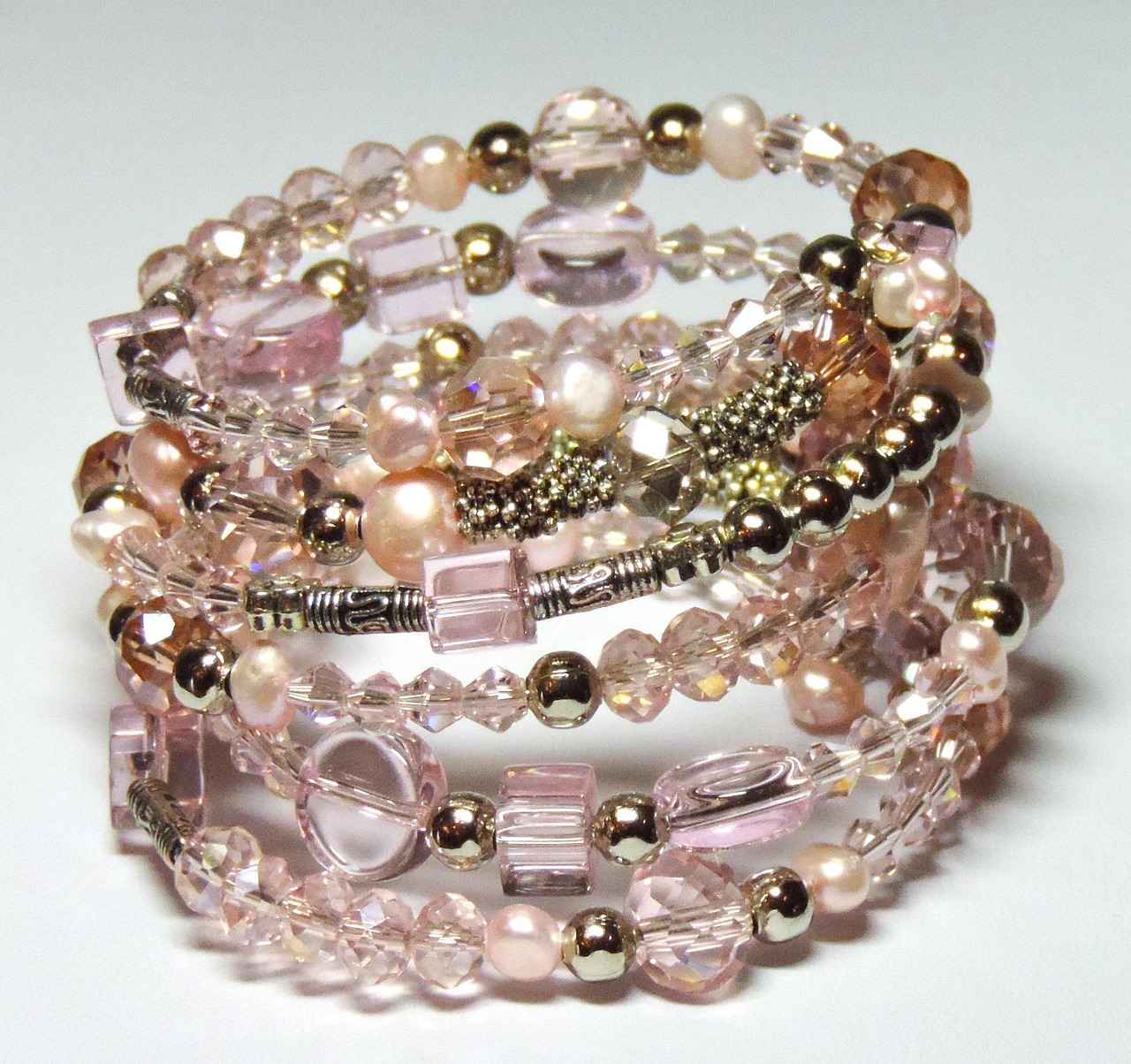In the world of jewelry shopping, the allure of beautiful pieces can sometimes cloud judgment, making consumers vulnerable to scams. This article provides essential tips and insights to help consumers navigate the jewelry market safely, ensuring they make informed purchases without falling prey to scams. Whether you’re looking for an engagement ring or a statement piece, understanding the landscape of jewelry buying is crucial.
Jewelry scams are unfortunately prevalent due to the emotional nature of purchases and the often limited knowledge of consumers. Scammers exploit these vulnerabilities, presenting counterfeit pieces as genuine. By understanding the common tactics used by fraudsters, buyers can better protect themselves.
Conducting thorough research is vital when selecting a jeweler. Utilize online resources such as reviews, ratings, and recommendations from trusted friends or family. Websites like Yelp and Google Reviews offer insights into the experiences of previous customers, helping to identify reputable sellers.
Recognizing a trustworthy jeweler involves looking for key indicators:
- Certifications: Look for jewelers who are certified by recognized organizations.
- Positive Feedback: High ratings and positive customer reviews are good signs.
- Transparency: A reputable jeweler will be open about their practices and policies.
Certifications from established organizations demonstrate a jeweler’s commitment to quality and ethical practices. These credentials provide buyers with peace of mind, knowing they are working with a professional who adheres to industry standards.
To ensure the authenticity of customer reviews, cross-check them on multiple platforms. This practice helps to paint a clearer picture of the jeweler’s reputation and can alert you to any potential red flags.
Understanding gemstone quality is essential for making informed purchases. Familiarize yourself with the four Cs: cut, color, clarity, and carat weight. Each factor significantly influences a gemstone’s value and appearance, so knowledge in these areas can empower buyers.
Being aware of common scams can help buyers protect themselves. Some prevalent tactics include:
- Overly aggressive sales tactics.
- Unrealistic pricing that seems too good to be true.
- Pressure to make immediate decisions.
Recognizing fake jewelry involves checking for quality marks and understanding materials. Familiarize yourself with common imitation techniques, such as the use of synthetic stones or base metals masquerading as precious ones.
Having jewelry appraised by a certified professional is vital. An appraisal provides a clear understanding of the item’s true value, ensuring that you do not overpay or inadvertently purchase counterfeit items.
Negotiating prices is a valuable skill in jewelry buying. Researching market prices beforehand can enhance your bargaining power. Approach negotiations with confidence and be prepared to walk away if the deal doesn’t meet your expectations.
Effective negotiation strategies include:
- Being informed about current market trends.
- Expressing genuine interest in the piece.
- Being patient and willing to negotiate over time.
Timing your purchase can greatly affect pricing and selection. Understanding seasonal trends and promotional sales can lead to significant savings.
Choosing a secure payment method is essential for online jewelry purchases. Opt for credit cards or trusted payment services to protect your financial information from potential fraud.
Cash transactions lack traceability, making them risky. Avoid paying in cash for high-value items to ensure you have a record of the purchase, which can be crucial for returns or disputes.
Before finalizing a purchase, always review the return policy carefully. A fair return policy is essential for addressing any issues with your jewelry after purchase, providing peace of mind.

Why Is Jewelry Scamming Common?
Jewelry, often regarded as a symbol of love, commitment, and personal expression, holds significant emotional value for many buyers. However, this emotional connection also makes consumers vulnerable to scams. Understanding the prevalence of jewelry scams is essential for anyone looking to make a purchase. By recognizing the tactics employed by scammers, buyers can better protect themselves and make informed decisions.
Jewelry scams are prevalent for several reasons:
- Emotional Manipulation: Scammers often exploit the emotional nature of jewelry purchases, especially during significant life events such as engagements, anniversaries, or holidays. They may create a sense of urgency, pressuring buyers to make quick decisions without proper research.
- Lack of Knowledge: Many consumers are not well-versed in the intricacies of jewelry, including the quality of gemstones, metal types, and market prices. This lack of knowledge can make it easier for scammers to misrepresent their products.
- Online Shopping Risks: The rise of e-commerce has made it easier for scammers to operate. Fake websites and social media accounts can easily mislead consumers, making it crucial to verify the legitimacy of online sellers.
- High Value of Items: Jewelry typically represents a significant investment. Scammers target this high-value market, knowing that the potential for profit is substantial.
To safeguard yourself against jewelry scams, it’s vital to stay informed and vigilant. Here are some tips to help you recognize potential red flags:
- Research the Seller: Before making a purchase, conduct thorough research on the jeweler. Look for reviews, ratings, and any complaints from previous customers.
- Check Certifications: Reputable jewelers often have certifications from recognized organizations. These certifications can indicate a jeweler’s credibility and adherence to industry standards.
- Ask for Appraisals: If you’re investing in high-value jewelry, request an appraisal from a certified gemologist. This ensures you understand the true value of the piece.
- Be Wary of Deals That Seem Too Good to Be True: If a deal appears too good to be true, it probably is. High-quality jewelry comes with a price, and significant discounts may indicate a scam.
By understanding the common tactics used by scammers and staying informed about the jewelry market, buyers can significantly reduce their risk of falling victim to scams. Knowledge is your best defense when it comes to making safe and satisfying jewelry purchases.

How to Research Jewelers Effectively?
When it comes to purchasing jewelry, conducting thorough research on jewelers is essential to ensure that you are making a wise investment. With a plethora of options available, it can be overwhelming to determine which jewelers are reputable and trustworthy. Here are some effective strategies to help you navigate this process.
Researching jewelers not only helps you find high-quality products but also protects you from potential scams. Many buyers have fallen victim to fraudulent sellers who exploit emotions and lack of knowledge. By arming yourself with information, you can recognize red flags and make informed decisions.
One of the most effective ways to assess a jeweler’s reputation is by checking online reviews and ratings. Websites such as Yelp, Google Reviews, and Trustpilot provide valuable insights from previous customers. Look for jewelers with a high number of positive reviews, as this indicates a strong track record of customer satisfaction. Pay attention to recurring themes in the feedback, such as quality of products, customer service, and return policies.
Another effective method for identifying reputable jewelers is to seek recommendations from friends, family, or colleagues who have previously made jewelry purchases. Personal experiences can offer insights that online reviews may not capture. Additionally, consider joining local jewelry enthusiast groups or forums where members share their experiences and recommendations.
Reputable jewelers often hold certifications from recognized organizations, which can serve as a mark of credibility. Look for jewelers who are members of professional associations such as the American Gem Society (AGS) or the Gemological Institute of America (GIA). These certifications indicate that the jeweler adheres to industry standards and ethical practices.
In today’s digital age, a jeweler’s online presence can provide significant insights into their legitimacy. A professional website with clear contact information, a well-defined return policy, and a secure payment method is a good sign. Additionally, check their social media profiles to gauge customer interactions and overall engagement.
To ensure the authenticity of customer reviews, it is wise to cross-check feedback on multiple platforms. If a jeweler has overwhelmingly positive reviews on one site but mixed feedback on another, this may warrant further investigation. Look for consistency in the reviews and be cautious of any red flags.
When researching jewelers, pay attention to their customer service. A reputable jeweler should be willing to answer your questions, provide detailed information about their products, and assist with any concerns you may have. Good customer service is often indicative of a jeweler’s commitment to their customers and can enhance your overall purchasing experience.
Before making a purchase, inquire about the jeweler’s return and exchange policies. A clear and fair policy is crucial for addressing any issues that may arise after your purchase. Reputable jewelers will typically offer a reasonable return period and will clearly outline the steps for returns or exchanges.
By following these strategies, you can effectively research jewelers and make informed decisions when purchasing jewelry. Remember, knowledge is power, and taking the time to conduct thorough research can save you from potential pitfalls and ensure that you find the perfect piece.
What Are the Signs of a Reputable Jeweler?
When it comes to purchasing jewelry, ensuring that you’re dealing with a reputable jeweler is crucial. With the rise of online shopping and the increasing number of jewelry scams, knowing what to look for can protect you from potential fraud. Here, we delve into the signs of a reputable jeweler, helping you make informed decisions.
One of the first indicators of a reputable jeweler is their certifications. Look for jewelers who are members of recognized organizations such as the Gemological Institute of America (GIA) or the American Gem Society (AGS). These affiliations suggest that the jeweler adheres to industry standards and ethical practices, providing you with peace of mind.
Customer feedback is invaluable when assessing a jeweler’s reputation. Check for reviews on multiple platforms, including Google, Yelp, and the jeweler’s own website. Positive testimonials often highlight aspects such as quality, service, and reliability, while negative reviews can reveal potential red flags.
A reputable jeweler should be transparent about their business practices. This includes clear information regarding pricing, sourcing of materials, and return policies. If a jeweler is reluctant to provide this information or seems evasive, it may be a sign to look elsewhere.
Exceptional customer service is a hallmark of a trustworthy jeweler. Pay attention to how staff members interact with you. Are they knowledgeable, friendly, and willing to answer your questions? A jeweler who prioritizes customer satisfaction is likely to be reputable.
Reputable jewelers often offer guarantees or warranties on their products. This not only indicates confidence in their merchandise but also provides you with protection should any issues arise after your purchase. Always inquire about the specifics of any guarantees offered.
The physical appearance of a jeweler’s store can also provide insights into their reputation. A well-maintained, organized, and inviting space often reflects the jeweler’s commitment to quality and professionalism. If the store appears disorganized or unkempt, it may be wise to reconsider your purchase.
Before making a significant investment, ensure that the jewelry comes with a professional appraisal. This document verifies the value of the piece and can help protect you from overpaying or purchasing counterfeit items. A reputable jeweler will provide you with appraisals from certified professionals.
In today’s digital age, a reputable jeweler should have a strong online presence. This includes a professional website, active social media accounts, and a history of engaging with customers online. A robust online reputation often correlates with a jeweler’s credibility.
Finally, inquire about the sourcing of the materials used in the jewelry. Reputable jewelers should be able to provide information on where their gemstones and metals come from, ensuring that they are ethically sourced and conflict-free. This transparency is increasingly important to many consumers today.
In summary, recognizing a reputable jeweler involves a combination of research, observation, and asking the right questions. By paying attention to these key signs, you can navigate the jewelry market with confidence and make purchases that are both satisfying and secure.
Why Are Certifications Important?
When purchasing jewelry, understanding the importance of certifications can significantly enhance your buying experience. Certifications from recognized organizations not only validate the quality of the jewelry but also indicate a jeweler’s credibility and adherence to industry standards. This assurance provides buyers with a sense of security and peace of mind during their purchasing journey.
Certifications are formal recognitions issued by reputable organizations that assess and verify the quality and authenticity of gemstones and jewelry. These organizations often include the Gemological Institute of America (GIA), the American Gem Society (AGS), and others known for their rigorous evaluation processes. A certification typically includes detailed information about the gemstone’s characteristics, such as cut, color, clarity, and carat weight, which are essential for understanding its value.
By purchasing certified jewelry, buyers can avoid potential scams and misrepresentations. Certified jewelers are more likely to provide accurate information about their products, and the certification serves as a guarantee that the jewelry has been evaluated by experts. This transparency is crucial, especially in a market where counterfeit items and overpriced pieces are prevalent.
- Credibility: Recognized certifications enhance the jeweler’s reputation, indicating they adhere to industry standards.
- Quality Assurance: Certifications ensure that the jewelry meets specific quality criteria, giving buyers confidence in their purchase.
- Resale Value: Certified jewelry often retains its value better than non-certified pieces, making it a wise investment.
If you encounter a jeweler who cannot provide certification, it is essential to proceed with caution. Ask for detailed information about the jewelry’s materials and origins. Additionally, consider seeking an independent appraisal from a certified gemologist to verify the quality and authenticity of the piece you are interested in.
To ensure that a certification is genuine, take the following steps:
- Check the Certification Number: Most certifications will have a unique identifier that you can cross-reference with the issuing organization.
- Research the Issuing Organization: Look for information about the organization and its credibility in the industry.
- Consult Experts: If in doubt, consult with a reputable jeweler or gemologist who can help verify the certification.
In summary, understanding the significance of certifications in the jewelry industry is crucial for making informed purchases. These certifications not only validate the quality of the jewelry but also protect buyers from potential scams. By prioritizing certified pieces, you can ensure that your investment is secure and valuable for years to come.
How to Verify Customer Reviews?
When purchasing jewelry, it’s essential to ensure that you’re dealing with a reputable jeweler. One of the most effective methods to gauge a jeweler’s credibility is by verifying customer reviews. In today’s digital age, consumers have access to countless platforms where reviews are posted, making it easier than ever to cross-check opinions and experiences.
Cross-checking customer reviews on multiple platforms is vital for several reasons:
- Authenticity: Reviews can be manipulated, with some businesses posting fake testimonials to enhance their reputation. By examining reviews from various sources, you can identify patterns and discrepancies that may indicate authenticity.
- Comprehensive Insight: Different platforms attract different user demographics. For instance, a review on a jewelry-specific site may provide insights that general review sites do not cover, such as specifics about the quality of gemstones or customer service experiences.
- Reputation Analysis: A jeweler may have a stellar rating on one site but a poor rating on another. By cross-referencing reviews, you can form a clearer picture of the jeweler’s overall reputation.
To effectively cross-check customer reviews, consider these popular platforms:
- Google Reviews: A widely used platform that provides a broad spectrum of customer feedback.
- Yelp: Known for its detailed reviews, Yelp can offer insights into customer experiences specific to jewelry purchases.
- Social Media: Platforms like Facebook and Instagram often feature customer testimonials and comments, which can provide real-time feedback.
- Jewelry-Specific Sites: Websites dedicated to jewelry reviews can offer more specialized insights into quality and service.
When analyzing reviews, pay attention to the following:
- Consistency: Look for recurring themes or issues mentioned across multiple reviews. If several customers highlight the same problem, it may warrant further investigation.
- Detail: Genuine reviews often include specific details about the purchase experience, such as the quality of the jewelry, customer service interactions, and delivery times.
- Responses from the Jeweler: A reputable jeweler will often respond to reviews, both positive and negative. This shows they value customer feedback and are willing to address concerns.
Identifying fake reviews can be challenging, but there are some red flags to watch out for:
- Generic Language: Reviews that sound overly generic or lack personal anecdotes may be fabricated.
- Excessive Positivity: Be wary of reviews that are overwhelmingly positive without any constructive criticism. Real customers often provide balanced feedback.
- Timing: A sudden influx of positive reviews within a short period can indicate a coordinated effort to boost ratings artificially.
In conclusion, verifying customer reviews through cross-checking on multiple platforms is a crucial step in ensuring that you are dealing with a reputable jeweler. By considering the authenticity, detail, and consistency of reviews, you can make a more informed decision and avoid potential scams in your jewelry purchasing journey.
What Should You Know About Gemstone Quality?
When it comes to purchasing jewelry, understanding gemstone quality is essential for making informed decisions. This knowledge not only enhances your appreciation for the piece but also helps you avoid costly mistakes. To navigate the world of gemstones effectively, familiarize yourself with the four Cs: cut, color, clarity, and carat weight.
The four Cs serve as the standard for evaluating gemstones, particularly diamonds. Each aspect contributes significantly to the overall quality and value of the stone.
- Cut: The cut of a gemstone refers to how well it has been shaped and faceted. A well-cut stone reflects light beautifully, enhancing its brilliance and sparkle. Poorly cut stones may appear dull, regardless of their other qualities.
- Color: For colored gemstones, color is one of the most significant factors. The hue, tone, and saturation determine the stone’s beauty and desirability. In diamonds, the absence of color is often preferred, with color grades ranging from D (colorless) to Z (light yellow).
- Clarity: Clarity measures the presence of internal or external flaws, known as inclusions and blemishes. Higher clarity stones are rarer and typically more valuable. Understanding clarity ratings can help you assess the quality of a gemstone accurately.
- Carat Weight: Carat weight indicates the size of the gemstone. While larger stones are often more valuable, the other Cs also play a crucial role in determining overall worth. A smaller stone with excellent cut, color, and clarity may be more desirable than a larger, lower-quality stone.
Being knowledgeable about gemstone quality empowers you as a buyer. It allows you to:
- Make Informed Decisions: Understanding the four Cs helps you evaluate gemstones critically, ensuring you choose the right piece that fits your budget and preferences.
- Avoid Scams: Scammers often exploit buyers’ lack of knowledge about gemstones. By mastering the four Cs, you can recognize when a deal is too good to be true.
- Appreciate Value: Knowing the quality of a gemstone enhances your appreciation for its beauty and craftsmanship, making your purchase more meaningful.
When assessing the quality of a gemstone, consider the following tips:
- Examine the Stone: Look for imperfections and evaluate the cut and color under different lighting conditions.
- Request Certification: Always ask for a certificate from a reputable gemological laboratory. This document provides an unbiased assessment of the gemstone’s quality.
- Compare Similar Stones: Assess multiple gemstones of similar quality and size to understand market pricing and value.
- Seek Expert Advice: Consult with gemologists or experienced jewelers who can provide insights into the gemstone’s quality and authenticity.
In conclusion, understanding gemstone quality is not just about knowing the four Cs; it is about equipping yourself with the knowledge to make confident and informed purchases. By doing so, you can enjoy the beauty of your jewelry while ensuring that you are getting the best value for your investment.

What Are Common Jewelry Scams to Avoid?
When it comes to buying jewelry, being informed is your best defense against potential scams. Jewelry scams can take many forms, and understanding the common tactics used by fraudsters can help buyers protect themselves. Below, we explore several prevalent scams and provide tips on how to avoid falling victim to them.
- Counterfeit Gemstones: One of the most common scams involves the sale of fake gemstones. Scammers often sell synthetic or treated stones as natural and high-quality gems. To avoid this, always request a certificate of authenticity from a reputable gemological laboratory.
- Overpriced Jewelry: Some jewelers may inflate prices to make a profit. It’s essential to research the market value of the piece you are interested in. Compare prices from different jewelers to ensure you are getting a fair deal.
- Misleading Discounts: Be wary of sales that seem too good to be true. Scammers often advertise significant discounts on jewelry that has never been sold at the original price. Always verify the original price before purchasing.
- Online Scams: With the rise of online shopping, many scammers have set up fake jewelry websites. Look for secure payment options and read customer reviews to ensure the website is legitimate.
- High-Pressure Sales Tactics: If a salesperson is pushing you to make a quick decision, it’s a red flag. Reputable jewelers understand that purchasing jewelry is a significant decision and will give you the time you need.
Understanding these common scams is crucial for any jewelry buyer. Here are some additional tips to help you navigate the jewelry market safely:
- Research Jewelers: Take the time to research jewelers before making a purchase. Look for customer reviews, ratings, and any complaints filed against them.
- Ask for Certifications: Ensure that the jeweler provides certifications for any gemstones or precious metals. This documentation is vital in verifying the quality and authenticity of your purchase.
- Get a Second Opinion: If you’re unsure about the value of a piece, consider having it appraised by a certified gemologist. This can help you avoid overpaying.
- Trust Your Instincts: If something feels off about a deal, trust your gut. It’s better to walk away than to risk falling victim to a scam.
Being aware of common scams can help buyers protect themselves. Familiarize yourself with tactics used by scammers to avoid falling victim. By conducting thorough research, asking the right questions, and trusting your instincts, you can make informed decisions when purchasing jewelry.
How to Identify Fake Jewelry?
When it comes to purchasing jewelry, the risk of encountering fake items is a significant concern for consumers. Understanding how to identify fake jewelry is essential for protecting your investment and ensuring that you receive genuine products. Here are some effective strategies to help you recognize counterfeit jewelry.
One of the first steps in identifying authentic jewelry is to look for quality marks. Reputable pieces often bear stamps indicating their metal content, such as 14K or 18K for gold, or .925 for sterling silver. These marks are a sign of quality and authenticity. If you do not see any marks, or if they appear to be poorly executed, this may indicate that the jewelry is not genuine.
Familiarizing yourself with common materials used in jewelry can also aid in spotting fakes. For instance, genuine gemstones have unique characteristics that can be difficult to replicate. Fake stones may look similar at first glance but lack the depth of color and clarity found in authentic gems. Additionally, understanding the differences between natural and synthetic materials can help you make informed decisions.
High-quality jewelry typically exhibits excellent craftsmanship. Look for smooth edges, even settings, and secure clasps. If the piece feels flimsy or has rough edges, it may be a sign of a poorly made imitation. Furthermore, take note of the weight; genuine pieces often feel more substantial than their fake counterparts.
Being aware of common imitation techniques can save you from costly mistakes. For example, many fake pieces use costume jewelry materials that may look appealing but lack durability. Additionally, counterfeit items may be sold at prices that are too good to be true. If a deal seems suspiciously low, it’s wise to proceed with caution.
If you are unsure about the authenticity of a piece, consider seeking a professional appraisal. Certified jewelers can provide expert insights into the quality and value of your jewelry, helping you determine if it is genuine or fake. This step is particularly important for high-value purchases.
In today’s digital age, numerous online resources can assist in identifying fake jewelry. Websites dedicated to jewelry education often provide images and descriptions of authentic pieces, allowing you to compare your item against known standards. Additionally, online forums can be valuable for gathering opinions and experiences from other consumers.
Finally, never underestimate the power of your instincts. If something feels off about a piece of jewelry, it’s important to listen to that feeling. Whether it’s the seller’s demeanor, the item’s appearance, or the pricing, trusting your gut can help you avoid potential scams.
By employing these strategies, you can improve your ability to identify fake jewelry and make informed purchasing decisions. Remember, knowledge is your best defense against scams in the jewelry market.
What Is the Importance of Appraisals?
When it comes to purchasing jewelry, understanding its value is paramount. One of the most effective ways to achieve this is through professional appraisals. Having jewelry appraised by a certified professional ensures that you grasp its true worth, which is crucial for several reasons.
Jewelry appraisals serve as a vital tool for buyers. A professional appraisal provides an unbiased assessment of the piece’s value based on various factors, including craftsmanship, materials, and market demand. Without this knowledge, buyers risk overpaying for items or falling prey to counterfeit pieces.
- Material Quality: The type of metal and gemstones used significantly impact the overall value of the jewelry.
- Craftsmanship: The skill involved in creating the piece can elevate its worth, especially for handmade items.
- Market Trends: Current market demand for specific styles or materials can fluctuate, affecting value.
- Provenance: The history of ownership can add sentimental and financial value to certain pieces.
Selecting the right appraiser is crucial. Look for professionals who hold certifications from recognized organizations, such as the American Society of Appraisers (ASA) or the International Society of Appraisers (ISA). These credentials indicate a commitment to ethical standards and ongoing education in the field.
During an appraisal, the expert will examine your jewelry closely. They may use specialized tools to assess the quality and authenticity of materials. Expect a detailed report outlining the findings, which can serve as a valuable document for insurance purposes or resale.
Understanding the true value of your jewelry helps protect your investment. If you ever need to sell or insure the piece, having an accurate appraisal ensures you receive a fair price. Additionally, it can help you avoid scams by providing a benchmark for what you should expect to pay or receive.
Yes, appraisals are essential for insurance purposes. Many insurance companies require a professional appraisal to determine coverage amounts for jewelry. This documentation ensures that you are adequately protected in case of loss, theft, or damage.
Neglecting to have your jewelry appraised can lead to significant financial repercussions. Without a proper valuation, you may:
- Overpay: Purchasing jewelry without knowing its worth can lead to inflated prices.
- Underinsure: Inadequate coverage can leave you vulnerable to financial loss in case of an unfortunate event.
- Fall for Counterfeits: Without expert insight, you may unknowingly purchase fake or misrepresented items.
In summary, the importance of appraisals cannot be overstated. They provide essential insights into the value of your jewelry, protect your investment, and ensure you make informed purchasing decisions. By consulting a certified professional, you can navigate the jewelry market with confidence, safeguarding yourself against potential scams and financial losses.

How to Negotiate Prices Wisely?
Negotiating prices is an essential skill when it comes to purchasing jewelry. With the right approach, buyers can secure better deals without sacrificing quality. This article will explore effective strategies to negotiate prices wisely, ensuring you make informed decisions during your jewelry shopping experience.
Negotiation is not just about haggling over prices; it’s about understanding the value of what you are purchasing. Jewelry can be a significant investment, and being able to negotiate can help you save money while ensuring you receive the best quality possible. In a market where prices can vary widely, knowing how to negotiate effectively can lead to substantial savings.
- Do Your Research: Before entering a negotiation, familiarize yourself with the current market prices of the jewelry you’re interested in. Websites, forums, and price comparison tools can provide valuable insights.
- Build Rapport: Establishing a positive relationship with the jeweler can create a more favorable negotiating environment. A friendly approach can often lead to better deals.
- Be Prepared to Walk Away: One of the most powerful negotiation tactics is the willingness to walk away if the terms aren’t favorable. This can prompt the seller to reconsider their offer.
- Ask Open-Ended Questions: Instead of making demands, ask questions like, “What is the best price you can offer?” This encourages dialogue and can lead to better outcomes.
- Highlight Your Intent: If you’re a repeat customer or plan to make multiple purchases, let the jeweler know. This can incentivize them to offer you a better deal.
While negotiating, it’s crucial to maintain a focus on quality. Here are some tips:
- Understand the Four Cs: Familiarize yourself with cut, color, clarity, and carat weight, especially when negotiating for gemstones. This knowledge will help you assess whether the price reflects the quality.
- Request Documentation: Ask for certifications and appraisals for high-value items. This not only verifies authenticity but also provides leverage during negotiations.
Timing can significantly impact your negotiating power. Consider the following:
- Seasonal Sales: Many jewelers offer discounts during holidays or special occasions. Shopping during these times can provide more room for negotiation.
- End of the Month: Retailers often have sales targets to meet, making them more likely to negotiate towards the end of the month.
To maximize your chances of success, avoid these common pitfalls:
- Being Uninformed: Entering negotiations without knowledge of market prices can leave you vulnerable to overpaying.
- Showing Desperation: Expressing a strong desire for a specific piece can weaken your negotiating position. Stay calm and composed.
- Ignoring Terms Beyond Price: Consider warranties, return policies, and maintenance services as part of the negotiation process.
By employing these strategies, you can enhance your negotiating skills and secure the best possible deals on jewelry. Remember, the goal is not just to lower the price but to ensure you are making a wise investment in quality pieces.
What Are Effective Negotiation Strategies?
When it comes to buying jewelry, mastering the art of negotiation can significantly enhance your purchasing experience. Understanding the nuances of effective negotiation strategies not only empowers you as a buyer but also ensures that you secure the best deals without compromising on quality. Below, we delve into some of the most effective strategies that can bolster your bargaining power.
One of the most crucial aspects of successful negotiation is being well-informed. Before stepping into a jewelry store, take the time to research current market prices for the type of jewelry you are interested in. Websites, forums, and even local jewelers can provide valuable insights into the going rates for various pieces. This knowledge gives you a solid foundation to negotiate effectively.
When negotiating, it’s essential to express genuine interest in the jewelry you are considering. Engaging with the salesperson by asking questions about the piece, its history, and its materials can create a rapport and demonstrate that you are a serious buyer. This connection may encourage the jeweler to offer you a better price or additional perks, such as free cleaning or a warranty.
Another effective strategy is to be prepared to walk away from the deal if it doesn’t meet your expectations. This tactic not only shows the seller that you are serious about your budget but also puts pressure on them to reconsider their pricing. Often, sellers may offer a better deal when they sense that a potential buyer is willing to leave without making a purchase.
Timing can play a significant role in negotiations. Consider shopping during off-peak seasons or during sales events when jewelers are more likely to offer discounts. Additionally, approaching the seller towards the end of the month or quarter may yield better results, as they might be eager to meet sales targets.
If you’re considering multiple items, try to negotiate a bundle deal. Buying several pieces at once can give you leverage to request a discount. Jewelers are often willing to negotiate on bulk purchases, as it guarantees them a larger sale.
Before entering negotiations, it’s crucial to establish your budget and stick to it. Knowing your limits not only helps you avoid overspending but also gives you confidence during the negotiation process. Communicate your budget to the seller, and don’t be afraid to push back if the price exceeds your set limits.
In addition to negotiating the price, consider asking for value-added services, such as free appraisals, insurance, or cleaning services. These extras can enhance the overall value of your purchase and make the deal more appealing without significantly impacting the jeweler’s bottom line.
Effective negotiation is not just about talking; it’s also about listening. Pay attention to the seller’s responses and be open to their suggestions. Active listening can reveal valuable information about pricing flexibility and promotions that you might not have been aware of initially.
Lastly, approach negotiations with a positive attitude. A friendly demeanor can go a long way in establishing a good relationship with the seller. A positive interaction may lead to better offers and a more enjoyable shopping experience overall.
By employing these effective negotiation strategies, you can enhance your bargaining power and ensure that you make informed, confident purchases in the jewelry market. Remember, knowledge is key, and a genuine approach can lead to fruitful negotiations.
When Is the Best Time to Buy Jewelry?
When it comes to purchasing jewelry, timing can significantly influence both pricing and selection. Understanding the seasonal trends and sales can help you secure the best deals. Many consumers overlook the importance of timing, often leading to missed opportunities for savings and unique finds.
Jewelry trends often align with the seasons, and being aware of these can enhance your buying experience. For instance, spring is commonly associated with weddings, leading to increased demand for engagement rings and bridal jewelry. Consequently, prices may rise during this period. Conversely, late summer and early fall may offer better deals as retailers clear out inventory to make way for new collections.
- Holiday Sales: Major holidays, such as Valentine’s Day, Mother’s Day, and Christmas, often come with significant discounts. Retailers frequently run promotions to attract buyers, making these periods ideal for purchasing.
- Black Friday and Cyber Monday: These shopping events are not just for electronics. Many jewelers offer substantial discounts during this time, making it an excellent opportunity to buy high-quality pieces at lower prices.
- End-of-Season Sales: At the end of each season, jewelers may discount their collections to make room for new items. This can be a perfect time to find unique pieces at a fraction of their original price.
To maximize your savings, it is essential to stay informed about sales and promotions. Subscribing to newsletters from your favorite jewelers or following them on social media can keep you updated on upcoming sales. Additionally, using price comparison websites can help you gauge whether a deal is truly worthwhile.
Being aware of market trends can also aid in your purchasing decisions. For example, if a particular gemstone becomes trendy, demand may spike, leading to higher prices. Conversely, if a new trend emerges, older styles may become less desirable, resulting in potential discounts. Keeping an eye on industry news and trends can give you an edge when it comes to timing your purchases.
In summary, timing your jewelry purchases can have a profound impact on both price and selection. By understanding seasonal trends, key shopping seasons, and market dynamics, you can enhance your chances of finding the perfect piece at the best price. Remember, a well-timed purchase not only saves you money but also ensures that you get the jewelry you truly desire.

How to Ensure a Secure Payment Method?
In the digital age, where online shopping has become increasingly popular, ensuring a secure payment method is paramount, especially when purchasing valuable items like jewelry. With the rise of e-commerce, buyers must be vigilant about protecting their financial information and personal data. This guide will provide you with essential insights on how to choose a secure payment method for your online jewelry purchases.
When buying jewelry online, choosing a secure payment method is crucial for safeguarding your financial information. Credit cards and trusted payment services not only offer buyer protection but also provide a layer of security against fraud. Unlike cash transactions, which leave no trace, secure payment methods ensure that all transactions are documented, making it easier to resolve disputes if they arise.
- Credit Cards: They offer built-in fraud protection, allowing you to dispute charges if something goes wrong.
- PayPal: A widely accepted payment service that provides an additional layer of security by not sharing your financial information with sellers.
- Apple Pay and Google Pay: These mobile payment options use encryption to protect your data and offer convenience during checkout.
Being aware of unsafe payment methods can help you avoid potential scams. Here are some red flags to watch out for:
- Wire Transfers: Sending money via wire transfer offers no buyer protection and is often favored by scammers.
- Cash Payments: Paying in cash for online purchases is risky and leaves you with no recourse if the transaction goes awry.
- Unverified Payment Platforms: Always ensure that the payment platform is reputable and has positive reviews from other users.
If you believe you have been a victim of fraud, take immediate action:
1. Contact your bank or credit card company to report the unauthorized transaction.2. Change your passwords for online accounts.3. Monitor your financial statements for any unusual activity.4. Report the fraud to relevant authorities to help prevent others from falling victim.
In addition to choosing a secure payment method, consider these tips to enhance your overall online security:
- Use Strong Passwords: Create complex passwords that combine letters, numbers, and special characters.
- Enable Two-Factor Authentication: This adds an extra layer of security to your accounts.
- Keep Software Updated: Regularly update your devices and applications to protect against vulnerabilities.
By following these guidelines, you can confidently navigate the online jewelry market while ensuring your financial information remains protected. Remember, a secure payment method is not just a precaution; it’s an essential step in safeguarding your investments.
What Are the Risks of Cash Transactions?
When it comes to making significant purchases, especially in the jewelry market, understanding the payment methods available is crucial. One common method that many individuals still utilize is cash. However, cash transactions come with inherent risks that can lead to potential complications and loss.
Cash transactions lack the necessary traceability that other payment methods provide. This means that once cash is exchanged, there is no record of the transaction. This absence of documentation can lead to various issues, especially when dealing with high-value items such as jewelry. Without a paper trail, proving the legitimacy of a purchase becomes nearly impossible.
In the unfortunate event that you lose your cash receipt, you may find yourself in a difficult situation. Many jewelers require proof of purchase for returns, exchanges, or warranty claims. If you cannot provide a receipt, you may be left without any recourse should the item not meet your expectations or if you encounter issues with it later.
Scammers often prefer cash transactions because they are untraceable. If you are purchasing jewelry from a dubious source and pay in cash, you are at risk of being scammed without any means of recovering your money. There are numerous stories of individuals who have fallen victim to scams involving cash payments, only to find that they have no way to retrieve their funds or hold the seller accountable.
- Credit Cards: Using a credit card not only provides a record of your transaction but also offers additional protections such as chargebacks.
- Secure Payment Services: Platforms like PayPal or Venmo can add an extra layer of security, ensuring that your financial information is safeguarded.
- Bank Transfers: While not as immediate as cash, bank transfers are traceable and can provide proof of payment.
Maintaining a record of your purchases is essential for various reasons. It helps in tracking your spending, verifying ownership, and ensuring that you have all necessary documentation for warranty claims or returns. In the case of high-value items, having a record can also assist in insurance claims if the item is lost or stolen.
Whenever possible, opt for payment methods that provide a clear record. This not only protects you as a consumer but also enhances your overall shopping experience. By avoiding cash transactions for high-value purchases, you can ensure that you have the necessary documentation to back up your claims and protect your investment.
In conclusion, while cash may seem like a straightforward payment method, the risks associated with it, especially in high-value transactions, can lead to significant complications. By choosing safer alternatives and maintaining proper records, you can make informed purchasing decisions and protect yourself from potential scams.
How to Check the Return Policy?
When purchasing jewelry, one of the most critical aspects to consider is the return policy. Before you finalize your purchase, it is essential to review the return policy carefully. A fair return policy not only provides peace of mind but also serves as a safety net for resolving any potential issues with your jewelry after the purchase. Here’s what you need to know about checking the return policy effectively.
The return policy acts as a protective measure for consumers. Jewelry can be a significant investment, and the right return policy can help you feel secure in your decision. If the piece does not meet your expectations or if there are defects, a clear and fair return policy allows you to return or exchange the item without hassle.
- Time Frame: Check how long you have to return the item. Many reputable jewelers offer a 30-day return window, while some may extend this period.
- Condition Requirements: Understand the condition in which the jewelry must be returned. Some policies require items to be unworn and in their original packaging.
- Refund Method: Know whether you will receive a full refund, store credit, or an exchange. This can affect your future purchasing decisions.
- Exceptions: Be aware of any exceptions to the return policy, such as final sale items or custom-made jewelry.
To ensure that you are making a well-informed decision, take the following steps:
- Read the Fine Print: Always read the entire return policy before making a purchase. Look for hidden clauses that may affect your ability to return the item.
- Ask Questions: If anything is unclear, don’t hesitate to ask the jeweler directly. A reputable seller will be happy to clarify their return policy.
- Check Online Reviews: Look for customer reviews regarding the return process. Positive feedback can indicate that the jeweler honors their return policy fairly.
If you find a return policy that seems overly restrictive or unfair, it may be a red flag. Consider this as a warning sign and explore other jewelers. A reputable jeweler should be transparent about their policies and willing to accommodate reasonable requests.
A fair return policy not only protects your purchase but also enhances your overall shopping experience. Knowing that you have options if something goes wrong can make the buying process less stressful. It allows you to focus on finding the perfect piece without the fear of being stuck with an unsatisfactory purchase.
In conclusion, always prioritize checking the return policy before making a jewelry purchase. A clear, fair, and customer-friendly return policy is essential for resolving issues and ensuring satisfaction with your investment. By following these tips, you can shop with confidence and make informed decisions.
Frequently Asked Questions
- What should I look for when buying jewelry?
When buying jewelry, always check for certifications, customer reviews, and the jeweler’s reputation. It’s like scouting for treasure; the more you know, the better your chances of finding a gem!
- How can I tell if a jeweler is reputable?
Look for positive feedback, transparency in pricing, and industry certifications. Think of it as a trust badge; if they have it, you can feel more secure in your purchase.
- What are the common signs of jewelry scams?
Common signs include overly low prices, high-pressure sales tactics, and lack of documentation. If it feels too good to be true, it probably is!
- Why are appraisals important?
Appraisals help you understand the true value of your jewelry, protecting you from overpaying for counterfeit items. It’s like having a financial safety net!
- When is the best time to buy jewelry?
Timing can make a huge difference! Look for seasonal sales or special occasions when prices drop. It’s like catching a wave; ride it for the best deals!
- What payment methods are safest for online purchases?
Opt for credit cards or trusted payment services to keep your financial info secure. Think of it as locking your valuables in a safe; you want the best protection!
- How do I check a jeweler’s return policy?
Always review the return policy before buying. A fair policy is your safety net, ensuring you can return items if they don’t meet your expectations.














